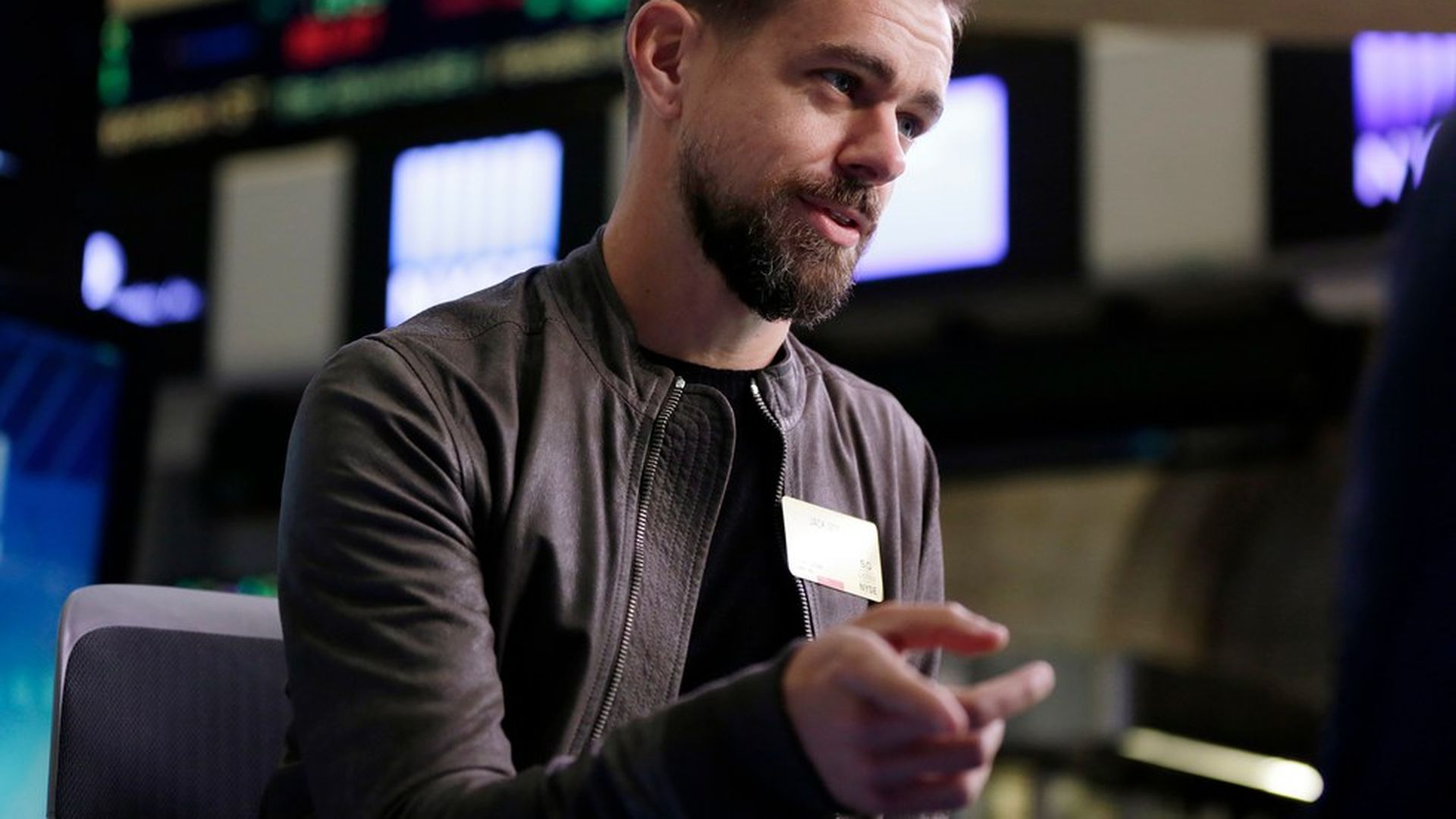Oct 26, 2017 - Technology
Twitter bans ads from RT and Sputnik over election concerns
Add Axios as your preferred source to
see more of our stories on Google.

Twitter CEO Jack Dorsey. Photo: Richard Drew / AP
Add Axios as your preferred source to
see more of our stories on Google.

Twitter CEO Jack Dorsey. Photo: Richard Drew / AP